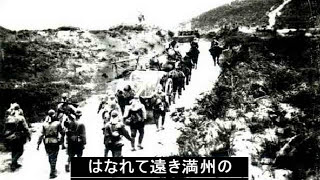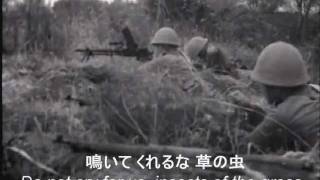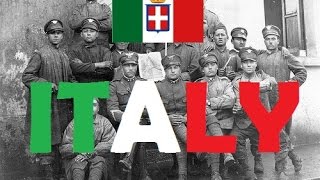Saturday, 03 January, 2026г.
















Где искать: по сайтам Запорожской области, статьи, видео ролики
пример: покупка автомобиля в Запорожье
軍歌:戦友 (Comrade in Arms)
軍歌:戦友 (Comrade in Arms)
With English subtitles
Here's the big one. I made it more slide-show styled, rather than an actual video given the deep, emotional and slow nature of the song. The whole song is comprised of 14 verses. This is a shortened version, which only includes the first 6.
This is the most important and well-known of all the Gunka songs. It's probably not an understatement to stay that every Japanese soldier, and perhaps every Japanese back at home, knew this song. Its the main Japanese soldier song, par excellence, of WW2.
Originally written in 1905, a product of the Russo-Japanese war, the song was revived during the period of war hysteria in the 1930s, amid the first pushes into China. It was sung throughout the war and experienced immense popularity among civilians and soldiers alike.
To me its a sort of soldier's lament, of tragedy and bravery on the battlefield, born of a war in which many Japanese soldiers laid down their lives (i.e. the Russo-Japanese War).
To understand the prevalent popular culture of the times, it might be instrumental for students of this period of history (not to mention its fame which stretches on to this day in Japanese minds and collective memory and literature) to memorize at least the first verse:
"koko wa okuni o nanbyakuri
hanarete touki manshuu no
akai yuuhi ni terasarete
tomo wa nozue no ishi no shita"
Lyrics and Midi here:
http://www.biwa.ne.jp/~kebuta/MIDI/MIDI-htm/Senyuu.htm
The book 'Japan's Total Empire' by Louise Young, gives these thoughts on the song and its context:
''The boom of Russo-Japanese War theme products reconnected Manchuria to the victory that had startled the world and gilded the '(Manchurian) lifeline' with the reflected glory of the earlier campaign.
At the same time, the resurrection of elegiac Russo-Japanese War songs like 'Senyuu' called to mind the human cost of the war, shading images of the Manchurian lifeline with bitter memories of death and sacrifice
.........
Even before its resurgence in popularity during the Manchurian Incident, 'Senyuu' had made phrases like 'red setting sun' (akai yuuhi) and 'hundreds of leagues from home' (koko wa mikuni o nanbyakuri) common epithets for Manchuria. Revived in 1931, 'Senyuu' reminded Japanese of the importance of defending their foothold in Northeast China. Representing Manchuria as the site of loss, the place where fathers, brothers, and comrades in arms died in heroic sacrifice, the 'Senyuu' revival strengthened the sense of connection that the lifeline was coming to represent. Manchuria must be defended, for it was all that the Japanese had left of the loved ones they mourned,
Such personalized narratives of loss were linked, invariably, with sacrifice for the nation. In 'Senyuu' this was conveyed by the reference to the flag.''
Теги:
senyuu 日露戦争 comrade arms song 軍歌大和魂 Japan military music war ww2 gunka empire soldier army 何百里 赤い夕日 english translation
Похожие видео
Мой аккаунт


 У вашего броузера проблема в совместимости с HTML5
У вашего броузера проблема в совместимости с HTML5


![Divine of The DEY ft M1 of Dead Prez "Letter 2 My Comrade" [Official Video] - Directed By Jayonez](/images/mq/8/d4/2sSLsBS85knN93.jpg)